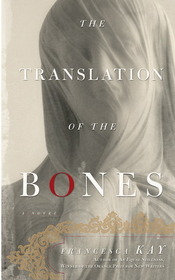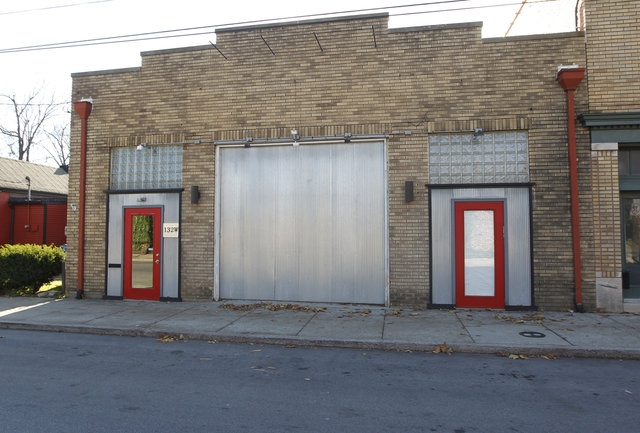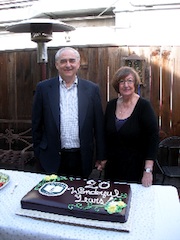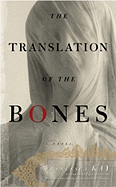 Francesca Kay, winner of the 2009 Orange New Writers Award for An Equal Stillness, the biography of a fictitious artist, has not fallen prey to "sophomore slump." Her second novel is as polished as one by an author with many years of experience. The title refers to the removal of holy relics to a place where they may be venerated--appropriate, since one of the themes of this book is the place of faith and religion in life.
Francesca Kay, winner of the 2009 Orange New Writers Award for An Equal Stillness, the biography of a fictitious artist, has not fallen prey to "sophomore slump." Her second novel is as polished as one by an author with many years of experience. The title refers to the removal of holy relics to a place where they may be venerated--appropriate, since one of the themes of this book is the place of faith and religion in life.
Mary-Margaret O'Reilly is a member of the Church of the Sacred Heart in Battersea, London. She is a slow-witted young woman who tidies and cleans the church. One day during Lent, she decides to wash the corpus on the crucifix in the Chapel of the Holy Souls. When she is cleaning the statue, she falls, sustains a very bloody head wound and is discovered unconscious on the floor by Stella Morrison, another parishioner.
While in hospital, Mary-Margaret talks with Kiti Mendoza, an attendant on the evening shift, about how the Lord saved her from any real harm, how He opened his eyes to look at her, blinked, and she could see "how badly He was hurting." She tells Kiti she believes that she reopened Our Lord's wounds and how desperately sorry she is. Kiti takes this news out to her friends and a mania descends upon the quiet church, one born of religious fervor and the wish to believe that a miracle has taken place.
Father Diamond does not believe that any such thing has happened; the blood is clearly from Mary-Margaret's head wound. He has always prided himself on keeping the church open and welcoming to anyone at any hour; now he has to lock it to keep out the fanatics who want to touch the statue.
Mary-Margaret's mother, Fidelma, forms another part of the story. She is irreligious, dreaming of past glories as a femme fatale who used her charms to get what she wanted. She is now an obese invalid, trapped on the 19th floor of a tower block, unable to leave. Mary-Margaret had taken care of her, until her accident.
Stella is married to a Member of Parliament and has two older children out in the world, but it is the youngest one, Felix, away at boarding school, for whom she pines. They both count the days until he can come home for term break. Motherhood is very important in this sad story: Mary-Margaret hasn't and never will have any children, so she baby-sits the child of immigrant neighbors; Fidelma knows that she was a bad mother to Mary-Margaret; Stella berates herself for ever allowing her son to be sent off to boarding school. Her husband is indifferent at best and never wanted the third child.
The intersection of these women's and children's lives culminates in one horrific incident that will forever change all of them. All the holy relics of their respective pasts will have to be translated to accommodate the new reality. --Valerie Ryan
Shelf Talker: Religious mania, motherhood and tragedy combine in this well-told tale, at times lyrical and always poignant.
 "There are lots of reasons to support local businesses, whether it's mom-and-pop hardware stores or neighborhood farmers' markets. But when you buy from an independent bookseller, you're doing something more. You're helping to keep alive an important force in making our national literary culture more diverse, interesting and delightful. Your shelves are full of books that wouldn't be there if not for indie booksellers you've never met, struggling to get by in shops you've never heard of. That’s why it's so important to support the one next door."
"There are lots of reasons to support local businesses, whether it's mom-and-pop hardware stores or neighborhood farmers' markets. But when you buy from an independent bookseller, you're doing something more. You're helping to keep alive an important force in making our national literary culture more diverse, interesting and delightful. Your shelves are full of books that wouldn't be there if not for indie booksellers you've never met, struggling to get by in shops you've never heard of. That’s why it's so important to support the one next door."












 with the city,
with the city,  A year ago tomorrow, Sherry Black was found brutally murdered in her bookstore, B&W Billiards and Books, Salt Lake City, Utah (
A year ago tomorrow, Sherry Black was found brutally murdered in her bookstore, B&W Billiards and Books, Salt Lake City, Utah (
 How does
How does  Hachette Book Group will collaborate with Bloomberg Businessweek to publish select special projects from the magazine in e-book form. The initial release is an e-book version of Steve Jobs 1955-2011, drawn from the October 10, 2011, issue of Bloomberg Businessweek. The e-book will be available in the U.S. and Canada for $3.99 on a range of platforms and devices. Featured writers include Steve Jurvetson, Eric Schmidt, John Sculley, Sean Wilsey and William Gibson.
Hachette Book Group will collaborate with Bloomberg Businessweek to publish select special projects from the magazine in e-book form. The initial release is an e-book version of Steve Jobs 1955-2011, drawn from the October 10, 2011, issue of Bloomberg Businessweek. The e-book will be available in the U.S. and Canada for $3.99 on a range of platforms and devices. Featured writers include Steve Jurvetson, Eric Schmidt, John Sculley, Sean Wilsey and William Gibson. Open Road Media has launched
Open Road Media has launched  Coriolanus, a modern reimagining of Shakespeare's play, opens in limited release this Friday, December 2. Ralph Fiennes directs and stars as the title character, a Roman soldier banished from the city for his extreme political views. Also stars Gerard Butler, Brian Cox and Jessica Chastain.
Coriolanus, a modern reimagining of Shakespeare's play, opens in limited release this Friday, December 2. Ralph Fiennes directs and stars as the title character, a Roman soldier banished from the city for his extreme political views. Also stars Gerard Butler, Brian Cox and Jessica Chastain. Francesca Kay, winner of the 2009 Orange New Writers Award for An Equal Stillness, the biography of a fictitious artist, has not fallen prey to "sophomore slump." Her second novel is as polished as one by an author with many years of experience. The title refers to the removal of holy relics to a place where they may be venerated--appropriate, since one of the themes of this book is the place of faith and religion in life.
Francesca Kay, winner of the 2009 Orange New Writers Award for An Equal Stillness, the biography of a fictitious artist, has not fallen prey to "sophomore slump." Her second novel is as polished as one by an author with many years of experience. The title refers to the removal of holy relics to a place where they may be venerated--appropriate, since one of the themes of this book is the place of faith and religion in life.
